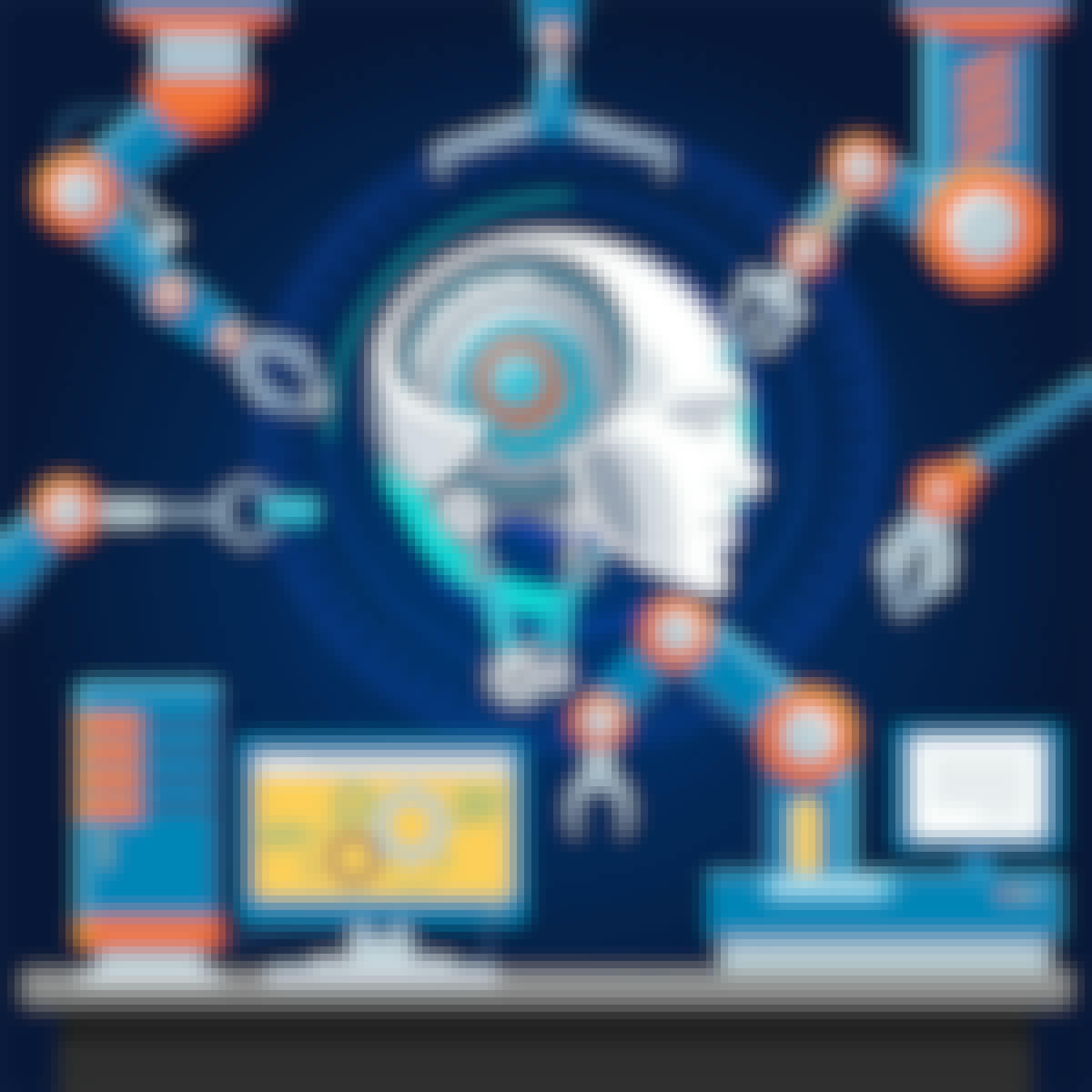Filter by
SubjectRequired
LanguageRequired
The language used throughout the course, in both instruction and assessments.
Learning ProductRequired
LevelRequired
DurationRequired
SkillsRequired
SubtitlesRequired
EducatorRequired
Explore the Unity Engine Course Catalog
 Status: NewStatus: Free Trial
Status: NewStatus: Free TrialIndian Institute of Technology Guwahati
Skills you'll gain: Computer-Aided Design, Manufacturing Processes, Mechanical Engineering, Manufacturing Operations, Automation, Simulation and Simulation Software, Robotic Process Automation, Programming Principles
 Status: Free Trial
Status: Free TrialSkills you'll gain: Cucumber (Software), Selenium (Software), Apache Maven, Object Oriented Programming (OOP), Behavior-Driven Development, Java, Jenkins, Test Case, Test Automation, CI/CD, Test Execution Engine, Application Frameworks, Software Testing, Software Design Patterns

Google Cloud
Skills you'll gain: Security Information and Event Management (SIEM), System Configuration, Google Cloud Platform, Event Monitoring, Docker (Software), Linux Administration, Software Installation, Real Time Data

Coursera Project Network
Skills you'll gain: Web Applications, SQL, Database Application, Data Access, Go (Programming Language), Database Management, Relational Databases, Web Development, Back-End Web Development, Secure Coding, Application Security
 Status: Free Trial
Status: Free TrialSkills you'll gain: Microservices, Google App Engine, CI/CD, Application Deployment, API Design, Google Cloud Platform, Cloud Computing Architecture, Service Level Agreement, DevOps, Kubernetes, Hybrid Cloud Computing, Distributed Denial-Of-Service (DDoS) Attacks, Network Architecture, Cloud Security, Cloud Storage, Scalability, System Monitoring, Disaster Recovery
 Status: Free Trial
Status: Free TrialSkills you'll gain: Kubernetes, Hybrid Cloud Computing, Multi-Cloud, Istio, Cloud Infrastructure, Google Cloud Platform, Cloud Computing Architecture, Configuration Management, Microservices, YAML, Git (Version Control System)
 Status: Free Trial
Status: Free TrialBoard Infinity
Skills you'll gain: Docker (Software), Containerization, Cloud Platforms, Application Deployment, Cloud Applications, CI/CD, Kubernetes, Continuous Integration, Jenkins, Amazon Web Services, Continuous Deployment, Devops Tools, Full-Stack Web Development, Microservices, Scalability

Skills you'll gain: Kubernetes, Istio, Private Cloud, Cloud Applications, Google Cloud Platform, Multi-Tenant Cloud Environments, Cloud API, Application Deployment, General Networking, Network Infrastructure

Skills you'll gain: Kubernetes, Network Security, Role-Based Access Control (RBAC), Infrastructure Security, Firewall, Private Cloud
 Status: NewStatus: Free Trial
Status: NewStatus: Free TrialDigital Marketing Institute
Skills you'll gain: Digital Marketing, Social Media Marketing, Marketing Channel, Digital Media Strategy, Marketing Automation, Marketing Strategy and Techniques, Social Media Strategy, Digital Advertising, Email Marketing, Content Marketing, Search Engine Optimization, E-Commerce, Customer Relationship Management (CRM) Software, Marketing Analytics, Customer Service, Web Applications

Coursera Project Network
Skills you'll gain: Cloud-Native Computing, Unstructured Data, Go (Programming Language), Web Servers, MySQL, Web Scraping, Server Side, Kubernetes, Web Applications, Back-End Web Development, Linux, Database Software
 Status: New
Status: NewCoursera Instructor Network
Skills you'll gain: Semiconductors, Production Process, Manufacturing Processes, Quality Assurance, Electronics Engineering, Engineering, Scientific, and Technical Instruments, Electronics, Technical Design, Process Analysis, Verification And Validation, Computer-Aided Design, Functional Testing, Simulation and Simulation Software, Emerging Technologies, Image Analysis
In summary, here are 10 of our most popular unity engine courses
- Elements of Computer Aided Manufacturing: Indian Institute of Technology Guwahati
- Advanced Selenium WebDriver Techniques and Framework Design: Packt
- Set up a SIEM forwarder on a Linux Instance: Google Cloud
- Relational Database with Go: Build an Article Search Engine: Coursera Project Network
- Reliable Cloud Infrastructure: Design and Process 한국어: Google Cloud
- Hybrid Cloud Multi-Cluster with Anthos en Français: Google Cloud
- Scalable Deployment and DevOps for Web Development: Board Infinity
- Manage and Secure Distributed Services with GKE Managed Service Mesh: Google Cloud
- How to Use a Network Policy on Google Kubernetes Engine: Google Cloud
- Digital Channel Planning Strategy: Digital Marketing Institute










